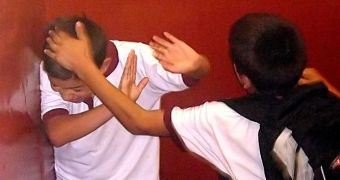According to a new investigation from a PhD student, it would appear that a tight and direct correlation exists between negative family environments and children's tendencies towards aggression. In the new work, entitled “Family context and aggressive behavior in 8-year-old children,” the author presents her results for investigations conducted in a number of schools in the Basque province of Bizkaia. More than 250 families with 8-year-old children were involved in this research, AlphaGalileo reports.
The study was not only focused on the children themselves, but also on other factors that may influence their behavior, including family, peers, friends, schools and so on. The researcher controlled for all of these elements in order to come to her conclusion. Ms Bellido also included more unusual types of questionnaires in her research methodology, including questions seeking to rate how parents saw the process of their children growing up. Additional questions were aimed at gathering significant amounts of socio-economic and demographic data.
Some 15 children from the study group were found at the beginning of the study to show sings of aggression. Of this subgroup, two were classified as being highly violent. One of the things that really stood out during the investigation was the fact that most of these children were not being looked after by their parents, but by either grandparents, or aunts and uncles. Bellido admitted that the numbers she had to work with were not very high, but adds that the correlations her study hints at could be more properly investigated in larger surveys of the general population.
Other factors that have also been determined to play a considerable influence on whether a child will become aggressive or not – in addition to the absence of parents from the lives – include strict discipline (but only when enforced by father alone, and not mothers), educational discrepancies, restriction-permissiveness, stress, and the feeling of injustice generate by the way chores were allotted in the household. The psychology student also determined that the poor initial predisposition of the idea of paternity that fathers had was extremely influential to the children's behavioral problems later on.

 14 DAY TRIAL //
14 DAY TRIAL //